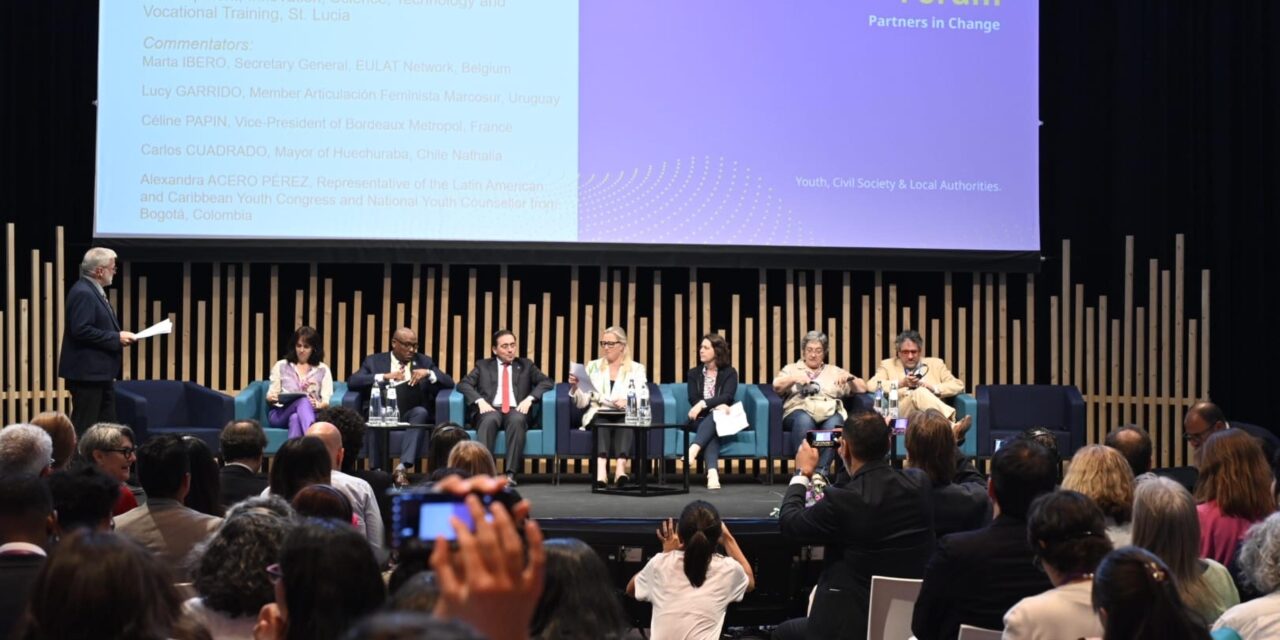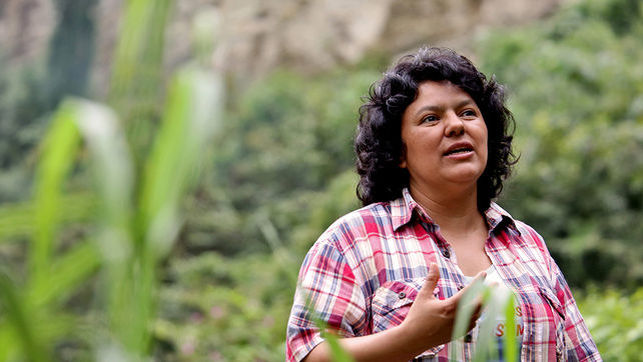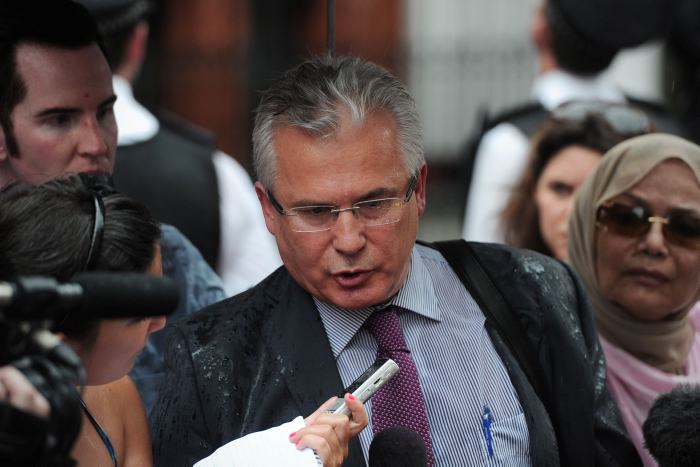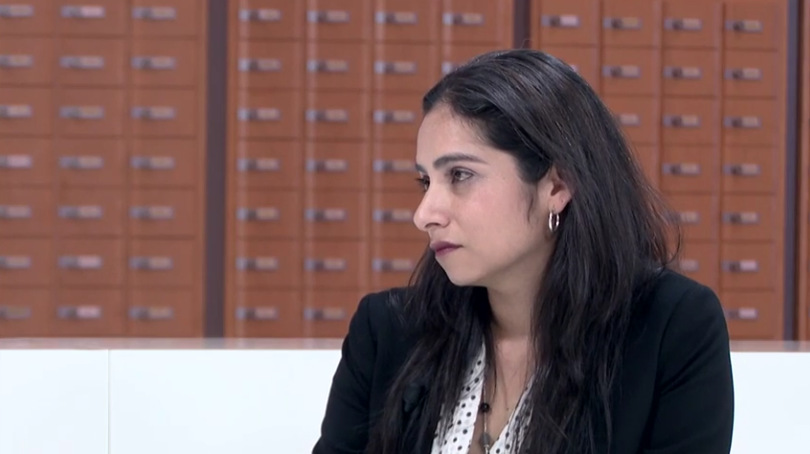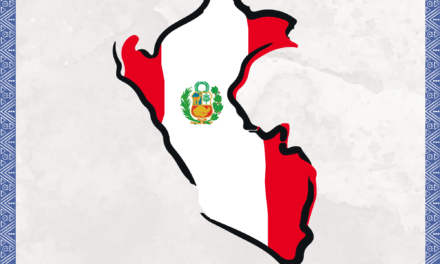On the 13th and 14th of July 2023, the EU-LAT Network was invited to participate at the EU-CELAC Civil Society, Youth and Local Authorities Forum – ahead of the EU-CELAC Summit.
For the first time in eight years, civil society organisations from Latin America and the European Union gathered together at the Civil Society Forum that traditionally precedes the EU-CELAC Summit. As this year’s summit was held with the objective to relaunch the EU-CELAC strategic partnership, the discussions, recommendations and conclusions of the Forum are a crucial first step to enhance the voice and participation of civil society. More specifically, in the context of a closing civic and democratic space on both sides of the Atlantic, the promotion of political dialogue between the plurality of civil society on human rights, development, trade agreements and investment should be more prioritised than ever before.
With the aim of promoting transformative, transparent and equal bi-regional relations, the EU-LAT Network has coordinated with international civil society to bring to the forefront these priorities in the discussions at the Forum and Summit. To do so, the Network published a position paper, together with the EU-LAC Working Group, introducing the priorities and corresponding recommendations of civil society called “Latin America and the Caribbean and the European Union: towards a real renewed political partnership. Civil society proposals to strengthen the bi-regional relationship” (read the position paper here). This document presented the main recommendation of the Forum: the establishment of a multi-stakeholder follow-up mechanism, that ensures an institutionalised, frequent, transparent and inclusive dialogue with civil society on EU-LAT relations.
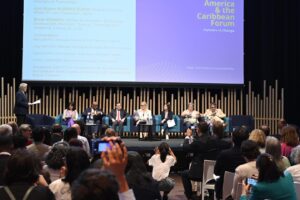
Left to right: Marta Ibero (EU-LAT Network), Shawn Edwards (Minister Education St Lucia), J.M. Albares Bueno (Minister Foreign Affairs Spain), Jutta Urpilainen (Commissioner DG INTPA), Céline Papin (Bordeaux Metropol), Lucy Garrido (Articulación Feminista Marcosur), Carlos Cuadrado (Mayor Huechuraba, Chile).
This message was presented by Marta Ibero, Executive Director of the EU-LAT Network, in her speech at the opening plenary session of the Forum on Thursday the 14th of July: “We understand this dialogue as a process, which is why many civil society organisations present here, trade unions, local governments and their associations have proposed to institutionalise the dialogue on EU-Latin America and the Caribbean relations in an official multi-stakeholder follow-up mechanism that includes the diversity of civil society and that is adequately funded.”
The Forum consisted of thematic dialogue sessions, each highlighting a crucial element in EU-CELAC relations: civic space, green transition and investments, Global Gateway, social equality and migration, among others. These sessions led to a series of recommendations, summarised in a final list of civil society proposals on each topic that would later be presented to the Heads of State at the EU-CELAC Summit. Read the civil society recommendations here. Although this final declaration included proposals on each topic, it would have been crucial to include more specific recommendations on certain thematics as well.
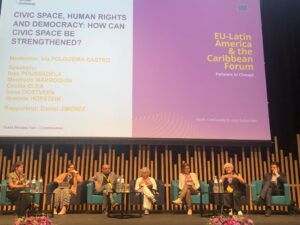
Left to right: Iria Folgueira Castro, Ines Poussadela, Manfredo Marroquín, Cecilia Olea, Irene Oostveen, Graciela Hopstein, Daniel Jimenez (EU-LAT Network).
For instance, having been given the role of rapporteur of the session on Civic Space, Democracy and Human Rights at the Forum, the EU-LAT Network identifies several other recommendations to be taken into account to reclaim closed civic spaces and to confront regional anti-democratic patterns: to open up open and safe channels of dialogue with all civil society organisations, increase access to resources for human rights defenders and to ensure accountability and to review funding to entities involved in in cases of corruption and human rights violations and to prioritise the protection and consultation of civil society. By organising the screening of the documentary “The Illusion of Abundance” as a side-event at the Forum, followed by a short panel discussion, the Network highlighted the need to prioritise human rights and environmental defenders in the context of trade and investments.
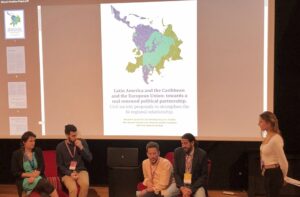
Lefto to Right: Iria Folgueira Castro (Protection International), Daniel Jimenez (EU-LAT Network), Hernán Saenz (Oxfam Int), Camilo Tovar (Race & Equality), Fay Vastenhoud (EU-LAT Network).
The list of civil society recommendations was presented at the EU-CELAC Summit the 17th and 18th of July. The Declaration of the Summit stated that the Heads of State have “taken note” of the messages of civil society. Therefore, in the aftermath of the Summit, it is crucial to ensure that the multi-stakeholder follow-up mechanism, essential to the transformation of EU-CELAC relations, will be established.
For further recommendations on each topic, read our position document here.

